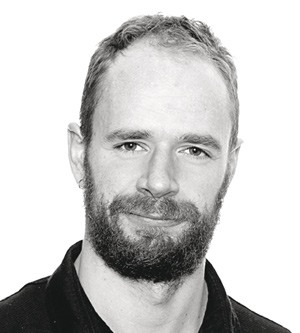The debate on drug-free programmes in mental health care concerns the nature of psychiatry – and what it ought to be.

Photo: Sturlason
Since 2010, a number of user organisations have campaigned for the introduction of drug-free treatment programmes in mental health care. In 2015, Bent Høie, Minister of Health and Care Services, set a deadline of 1 June 2016 for the regional health authorities to establish such programmes (1). The content of these programmes and for whom they should apply was not specified, but in practice they will apply to patients with psychoses or severe mood disorders. The minister’s decree has met with criticism, however. In this issue of the Journal of the Norwegian Medical Association, three psychiatrists describe drug-free hospital wards as «an uninformed measure» (2).
Could the history of science help inform the debate on drug-free programmes? It points to the historic context of our notions of knowledge. This is liberating, because it makes us aware of the frameworks – and limitations – of our opinions, not least our view of knowledge in contemporary psychiatry. Already in the Age of Enlightenment, madness was turned into an object for medical science – it was no longer seen as strangeness, but as illness that could be addressed by doctors (3). The foundation for our contemporary neurobiological understanding of disease was laid later, in the 19th century. The Parisian anatomical-clinical model applied in somatic medicine – the idea that clinical signs had to find their basis in a pathoanatomical substrate – was then also applied to mental disorders (4). The discipline was carved out using neurology and neuropathology as models. At the same time, psychoanalysis was born, representing a radically different approach to symptoms and mental illness: the symptoms were interpreted as meaningful expressions of underlying conflicts and mental tensions in the patient. In broad terms we can say that psychiatry still remains caught in the tension zone between these perspectives.
Despite the development in genetics and neuroscience we have little knowledge about the causes of mental illness (5). Nor has research produced any new forms of diagnostics or therapies. This has given rise to renewed criticism regarding what kind of science psychiatry is, and what direction the discipline ought to take (6). Has the concern with biological explanatory models caused us to neglect research on psychosocial, contextually interpretative forms of therapy for mental illness? Although the biopsychosocial approach is recognised, the biological model nevertheless remains at the top of the hierarchy. I believe that the more widespread the idea of mental illness as a natural object – for example understood as a chemical imbalance, «something inside» the brain – the lower the threshold to initiation of drug-based therapies. The call for drug-free programmes in psychiatry is therefore linked to the question of scientific paradigm. The call from the users can be seen as reflecting how patients do not feel at home with current notions of disease in psychiatry.
An argument against drug-free programmes is the lack of an evidence base. I have found only one randomised trial of psychotherapy in non-medicated patients with schizophrenia (8). It showed that cognitive therapy may represent an effective alternative for those who do not want to take drugs. History provides many examples of testing ineffective, harmful and even lethal forms of therapy on people with mental illness; suffice it to mention insulin shock therapy and lobotomy. The requirement for documentation of treatment is an obvious advantage. The effectiveness of antipsychotic drugs is a controversial issue (9), and many quit taking the drugs because of their adverse effects (10). However, administering antipsychotic drugs for psychosis can reduce mortality (11). Can we nevertheless defend drug-free programmes?
Society cannot pay for therapies that have no effect. All the same, this argument is of a rather passive nature: perhaps we ought to ask ourselves why so few studies have been undertaken of non-drug interventions for serious mental disorders? Since the drug-free programmes are now being established, this ought to be followed up by a number of research projects. We need more knowledge about what matters to the patients and which sub-groups of patients can benefit from the various forms of therapy.
This is fundamentally also a question of autonomy: who has the right to decide what is best for my life? Given that the patient has the capacity to provide informed consent and clearly states that he or she does not want to be medicated, why should we not heed this wish? Is our primary task as doctors not to communicate knowledge to the patients, so that they may make informed choices for themselves? The alternative, that the doctor decides, is not a valid course. Given the limitations of current knowledge regarding causes, diagnostics and therapy, strong emphasis should be placed on patient preferences. The mentally ill constitute a group with poor legal protection (12). We therefore ought to listen.